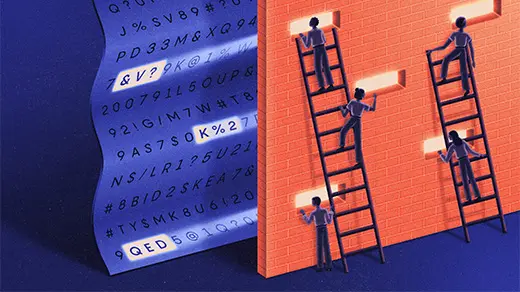What's up in
Computational complexity
Latest Articles
Catalytic Computing Taps the Full Power of a Full Hard Drive
Ten years ago, researchers proved that adding full memory can theoretically aid computation. They’re just now beginning to understand the implications.
Chatbot Software Begins to Face Fundamental Limitations
Recent results show that large language models struggle with compositional tasks, suggesting a hard limit to their abilities.
Why Computer Scientists Consult Oracles
Hypothetical devices that can quickly and accurately answer questions have become a powerful tool in computational complexity theory.
Computer Scientists Combine Two ‘Beautiful’ Proof Methods
Three researchers have figured out how to craft a proof that spreads out information while keeping it perfectly secret.
How Does Math Keep Secrets?
Cryptography is the thread that connects Julius Caesar, World War II and quantum computing, and it now lies under nearly every part of modern life. In this week’s episode, computer scientist Boaz Barak and co-host Janna Levin discuss the past and future of secrecy.
The Question of What’s Fair Illuminates the Question of What’s Hard
Computational complexity theorists have discovered a surprising new way to understand what makes certain problems hard.
Cryptographers Discover a New Foundation for Quantum Secrecy
Researchers have proved that secure quantum encryption is possible in a world without hard problems.
Cryptography Tricks Make a Hard Problem a Little Easier
Researchers have shown how to find the simplest description of a data set faster than by simply checking every possibility.
Avi Wigderson, Complexity Theory Pioneer, Wins Turing Award
The prolific researcher found deep connections between randomness and computation and spent a career influencing cryptographers, complexity researchers and more.








